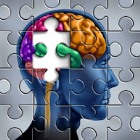 Read more from Allison here
Read more from Allison here
Dr. Allison Lamont, Brain and Memory Foundation.
Perhaps this is one of the most pressing questions as we age? The advances made in brain research over the past few years are starting to provide some answers for us.
One of the most promising discoveries has come from the new scanning technologies.
Imagine two people both have the plaques and tangles in the brain that are very typical of Alzheimer's, but only one is showing the disease symptoms. What could explain this?
People who live mentally stimulating lives from education, occupation, and leisure activities appear to have a reduced risk of developing Alzheimer's. The brain pathology will still occur, but it seems that some people are able to cope with it better. Some will never be diagnosed with Alzheimer's simply because they will not have any of the symptoms.
Studies that have followed healthy adults during the ageing process and then were permitted to study their brains through autopsy have shown that up to twenty percent of the people that didn't show any significant problem in their daily lives have full-blown Alzheimer's pathology. This is absolutely startling!
So what could provide that protection?

There are two schools of thought that really go together.
The first is termed 'brain reserve' meaning that some people seem to have more brain neurons and synapses (the connections between brain neurons) and somehow this gives a level of protection. It's as if they have stronger 'hardware' to start with.
Then there is 'cognitive reserve' which means the person has built new capabilities, can keep performing mental tasks well because they have continually practised them, and keep their brains stimulated by plenty of exercise, social engagement, good nutrition, and always trying to learn new information and generally keeping interested in everything going on around them.
This is a bit like polishing up the brain's 'software'. Then, if memory or brain problems rear their heads, then we are better able to deal with it.
The amazing thing is that we now know that building up the cognitive reserve also builds new brain connections and strengthens the ones we already have. New synapse can also be developed when we are mentally active, a process termed neuroplasticity' – the understanding that we can positively influence the health and volume of the brain.
What is exciting is that, whatever our age, education or occupation, our level of participation in leisure and learning activities has a cumulative and significant effect on our brain and memory health. The more things you do and the earlier you start, the better off we are.
It is never too late to give our brain and memory its very best opportunity of growing strong and healthy connections.
Encourage your children and grandchildren to have a strong curiosity, to engage in challenging mental tasks, and to maintain a healthy lifestyle throughout their lives to give them the very best possibility for avoiding memory problems later in life. It is a wonderful gift.
Dr. Allison Lamont is a clinician at the Auckland Memory Clinic. She is engaged in the testing of memory, and the treatment and prevention of memory loss. With her sister, Gillian Eadie, she has co-authored several books on memory and memory loss prevention. You will find some of these in the GrownUps store. Visit the Brain and Memory Foundation for memory information.
You will find Dr Lamont's book 'Seven Second Memory' in our Shop!









Join the Discussion
Type out your comment here:
You must be logged in to post a comment.